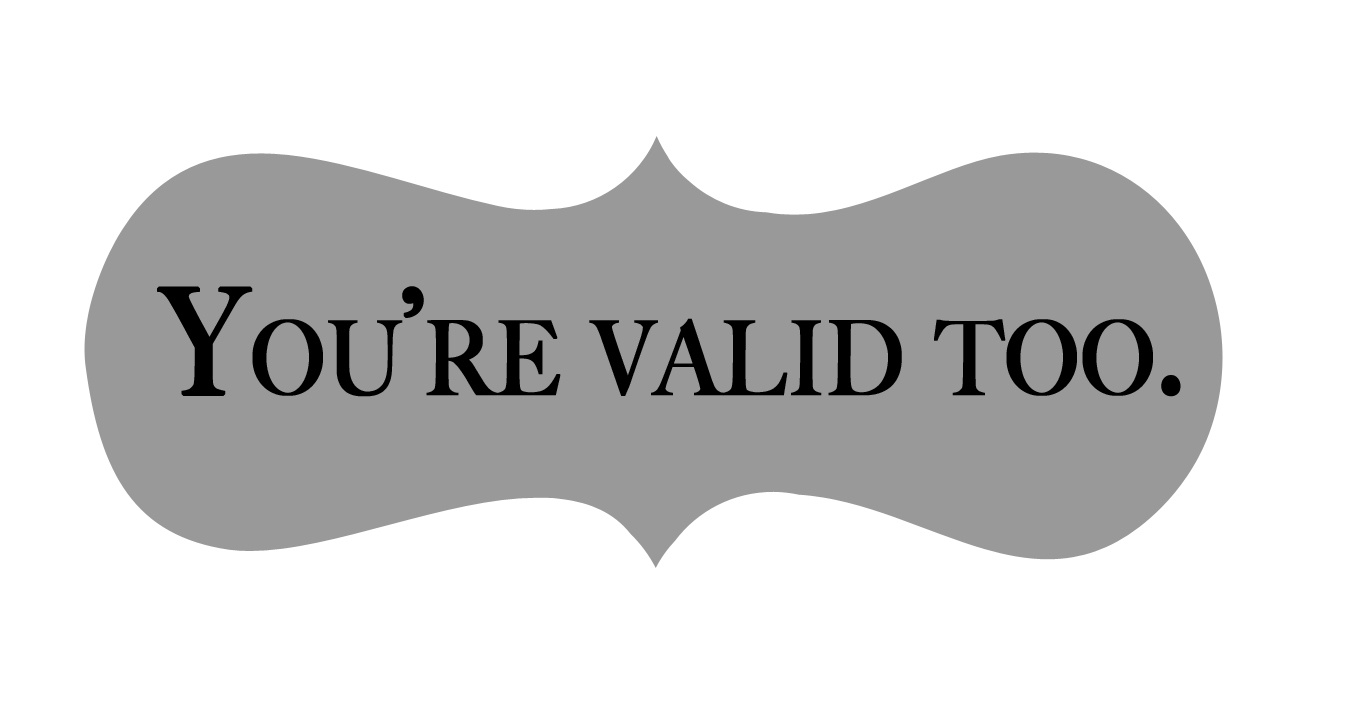When exactly did we forget how to argue?
Because we have forgotten. It seems like the goal of most of the arguments I’ve heard or seen lately haven’t had anything to do with hearing multiple sides of an argument, or solving a problem. Instead there’s been a single objective: to shut down the opposition.
I don’t know if this is an outgrowth of the fear, anger, and divisiveness that blossomed in our country after 2001. I don’t know if this is the fault of the Internet, where anonymous comment boxes routinely turn human beings into trolls. But whatever it is, as a culture, we’ve forgotten how to argue. We only know how to invalidate.
And so, because I’m a patriot and a humanitarian, I’m going to solve this problem for everyone right now. And, I’m going to do it with three little words:
No need to thank me. It’s in the best interest of our civilization that we all put on tee shirts bearing these words whenever we’re feeling argumentative from now on. And, if we’re arguing on the Internet, we should consider using these words in our thumbnail photos as well. If we’re arguing in Congress we should scrawl “You’re Valid Too” on our legal pads and hold them up so that everyone can see then while we’re delivering our remarks — no matter how venomous they are — because if we can’t recognize the validity of other points of view in conversation, we can at the very least do it by the use of a visual aid.
How can You’re Valid Too help? Below are a few examples:
1) Consider the people who say things like “If you’re not a [parent, teacher, veteran, member of ethnic/religious group, etc.] you can’t say anything.”
What is that? Of course people can still give their opinions if they aren’t insiders. Their opinions may not be interesting, useful, insightful or welcome to you, but there’s no call to invalidate such speech before it even happens. My first instinct when someone says something like this is to call her a censoring bully and to walk away, which doesn’t solve anything.
But if someone wearing a “You’re Valid Too” tee shirt delivered this remark, I could look down at her shirt and be reminded that this person may have forgotten momentarily that I’m valid because she is angry or afraid of criticism, and that can remind me, in turn, that this person’s anger and fear is valid, and then maybe I can remember that when I respond. Instead of the knee-jerk response, maybe I can give a rational one.
2.) Consider people who threadjack on the Internet. Consider the following fictional conversation:
Facebooker One: Whew. Bad day at work. Pass the scotch.
Facebooker Two: You think YOU had a bad day? Call me if you want to know what a REAL bad day looks like!
Now, Facebooker Two, there was no need to invalidate Facebooker One’s bad day. Your bad day was valid, too, Okay? And, if Facebooker Two’s profile picture was just the words You’re Valid Too, maybe he will look at that thread, remember his own validity and that of Facebooker One’s, and have the decency to delete his comment or at least ask how Facebooker One’s day actually was before jumping in with the horrors of his own day.
3.) Trolls. You should never engage with a troll (someone who posts hateful or inflammatory comments on the Internet just to get a reaction) on the Internet. You should always ignore them, despite the fact that they tend to hurt feelings, cause incoherent rage and raise blood pressure.
Now, if — by some magical Internet law — trolls all automatically had thumbnail photos bearing the words “You’re Valid Too,” we might be more likely to identify them as the pathetic attention-seekers they are. We might feel pity rather than rage. Pity is much better for your blood pressure.
4.) Some people in Texas, unhappy with the results of the presidential election, want to secede from the union and petition to do so. Some might think that this is the political equivalent of “I’m taking my toys and going home.” That’s a valid interpretation.
But if this petition were sent to the White House on letterhead reading “You’re Valid Too,” maybe the request would be taken more seriously as the recipient considers that the Texans are afraid and upset, but do realize that the rest of the country had a valid election. And maybe if the refusal were sent back on the same letterhead, the petitioning Texans will realize that though their request was rejected, their worries were seen as valid, and maybe they’ll be slightly better disposed toward the current administration. You never know. But this can’t hurt.
You’re welcome, Earth.
Your tee shirts are here and here.
Go forth, and be reasonable.


